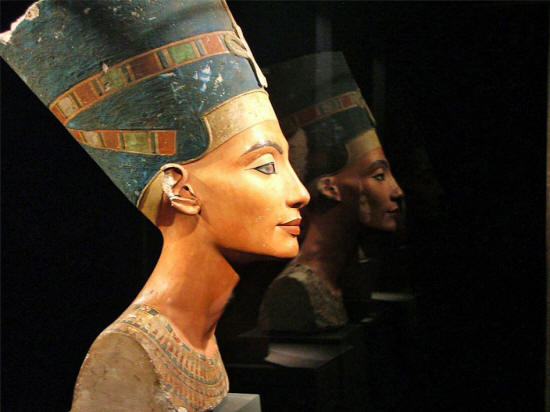|
from
BigThink Website Nefertiti, Confucius, and Socrates
But just how far back do humans need to go to find a common ancestor of their own:
The answer, for people of European descent at least, is surprisingly recent:
The common ancestor for every single person alive on the planet today, no matter where, lived approximately 3,600 years ago.
That means Confucius, Nefertiti, Socrates, and any figure from ancient history that had children, is in some way your ancestor...
Nefertiti
This comes to light through a new book by Adam Rutherford titled A Brief History of Everyone Who Ever Lived, which explores efforts within mathematics and science to describe human ancestry on a grand scale.
So how do we make sense of this numerical discrepancy?
It helps to view our family lineage as an entangled web instead of a neat "family tree."
The startling discovery that all Europeans might share a common ancestor who walked the Earth just 600 years ago was first proposed in 1999 by a Yale statistician named Joseph Chang.
In his paper "Recent Common Ancestors of All Present-Day Individuals," Chang used complex mathematical concepts - like Poisson distributions and Markov chains - to show how webbed pedigrees can overlap to produce common ancestors.
So if all living Europeans have a common ancestor who lived around the year 1400, what happens when you look further back into the past?
Chang's calculations suggest that about one fifth of Europeans who lived a millennium ago have no living ancestors today.
This seems to be because their ancestral line died off along the way.
Conversely, as Rutherford writes, the implication is that everyone else alive a millennium ago is related to Europeans alive today.
Chang's complex mathematical paper concludes with a passage that's rather poetic for a numbers guy:
Still, mapping out an exact pedigree for an individual is exceedingly difficult.
For instance, the "family trees" that Ancestry.com provides its users only go back up to 10 generations - sometimes less if users want more reliable results.
Often someone's luck with tracing their family lineage comes down to whether or not they can find documents that detail the lives of their ancestors.
At a certain point, the act of tracing family lineage becomes purely theoretical, as Mark Humphrys, a computer scientist at Dublin City University, told Steve Olson in an article for The Atlantic:
|



